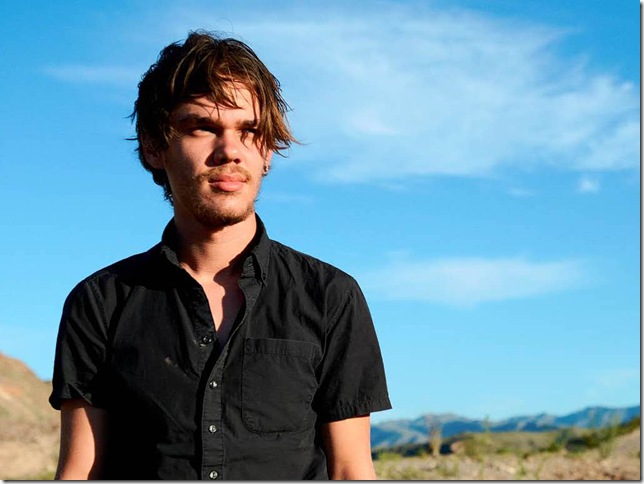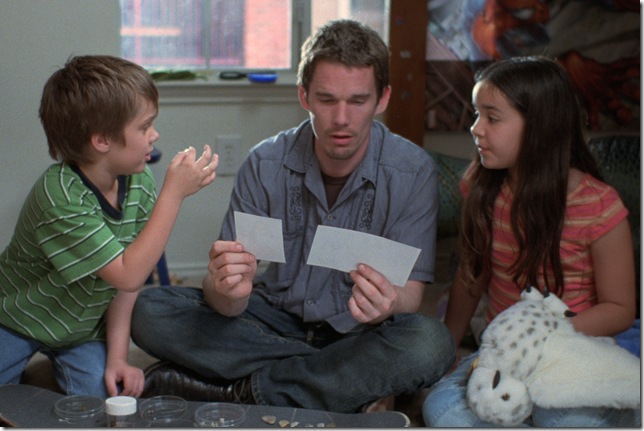Boyhood, perhaps the most acclaimed film of 2014, was a risk on many levels. Foremost among them was the pressure put on a 6-year-old kid named Ellar Coltrane to carry a movie that revolved around him, that he would grow before the viewers’ eyes into an accomplished actor as he grew — literally — from 6 to 18 years old.
But the risk by writer-director Richard Linklater paid off, and to the many prizes Coltrane has gathered for his performance as restless, rebellious Mason in Boyhood, he will soon add the Shooting Star Award he will pick up from the Palm Beach International Film Festival on Saturday.
Reflecting on the 12 years of filming, a little bit each summer, and the attention he and the movie have received, Coltrane says by phone, “It’s been a hell of a journey. All of the recognition and stuff has been really wonderful. That’s definitely a part of why you make something like this, to kind of connect with people, to be understood.
“But looking back, that was never our goal, necessarily. We didn’t really think a lot about the end product. It was just kind of a journey we were on, an outlet for me, growing up. Even though the character’s not me, I used a lot of myself, so it was always a way to explore what I was going through,” Coltrane says.
Even at 6, Coltrane was already an experienced actor. “I mean, I did a lot of theater when I was real young, so I definitely knew that I enjoyed it. I was pretty bashful, I was pretty shy, so at first I was kind of hesitant, but when I got the audition for ‘Boyhood,’ I had done a couple of indie films and commercials and stuff, so I was getting more comfortable with being in front of a camera.”
His audition for Linklater was as unconventional as the film became. “It was just kind of a conversation,” notes Coltrane. “He didn’t have a script written or anything. He just kind of wanted to get to know me. He just asked me about myself and my art, all kinds of stuff. And five or six callbacks later, he said I had the part.”
Why he was chosen for the pivotal role remains a mystery to Coltrane. “I mean, I’m not sure he entirely knows. Richard tends to go with his instincts, I think. If I had to guess, it’s that we look at the world in kind of a similar way.”
After all, Mason is an amalgam of Linklater as a boy, Coltrane and a bit of Ethan Hawke, the frequent collaborator with the director who plays Mason’s father. “Richard was always asking me for input as I was growing up,” says Coltrane. “And as I became more of a person and had more input to give, that became what the character was because I had more ideas and more thoughts to contribute.”
But the young actor denies the general impression that most of the film was improvised. “There was an element of improvisation, just because we were writing it as we went along,” he concedes. “We would get together and Richard would have the basis of the scene and bits of it written out, but we would also use a lot of improvisation in the rehearsal process. Richard would kind of have bullet points or a map of the scene, and we would flesh it out and use natural words to kind of bring those ideas to life. So there was a lot of improvisation in that area, but when we got to filming it was always scripted.”
In fact, filming Boyhood brought a structure to Coltrane’s life that he was not used to. “I was home-schooled, so I didn’t have a lot of imposed obligation. I got to do pretty much whatever I liked,” he explains. “So it was exciting to have something that I was responsible for.”
His friends came to accept that Ellar would not be available to play with them in late summer when he was working on the movie. “When I was young, I would tell everybody I met. I was really excited. As I got older, I stopped talking about it as much. Now everyone understands the concept, but 10 years ago it took 15 minutes to really describe what it was because it was kind of strange,” concedes Coltrane. “But my close friends all knew, knew about this weird thing I would do.”
Shooting Boyhood in short bursts each year, with a script that was incomplete, made it difficult for Coltrane to envision what the finished film would look like. “That was kind of the gift of it being over such a long period of time,” he says. “And also Richard, kind of intentionally, veered the focus away from us ever really thinking about the final product. Especially for me and Lorelei (Linklater’s daughter), I think, he never showed us any of the dailies or anything. We were just allowed to be lost in the process of making it. I think that’s how all projects should be.”
The first time Coltrane saw the completed film, he was alone in a screening room. “Richard wisely suggested that I watch it by myself a few times before we took it to Sundance,” he says.
“It was very emotional, this kind of catharsis. You spend your whole life wondering how you’re changing over time and to see it in front of you like that and such a reflection of what I went through, the input that I had into the character’s emotional response to things, to see that played out is intense.”
Filming Boyhood “was pretty unobtrusive into my life. If anything it granted me another outlet to introspect, so maybe it made me more introspective than I already was,” he says with a tiny chuckle. “But what’s happened now, after the release and the attention and the awards and everything, being so submerged in Hollywood, is a pretty far cry from anything I experienced while making the film. I’ve definitely grown up a lot in the last year. I’ve had to.”
At the top of the list of bizarre experiences Coltrane has had lately is attending the Academy Awards. “It was very surreal. It’s a circus. It’s a fascinating thing to get to witness, that very few people get to see from the inside,” he says. “The way I find I enjoy it most is to look at it anthropologically.”
And wait until he gets his first look at Palm Beach.
The Palm Beach International Film Festival begins Thursday and runs through April 2. For more information, and to reserve a spot for Saturday night’s VIP party with Ellar Coltrane and Tom Arnold, call 362-0003. A complete list of the films can be found at www.pbifilmfest.org.

